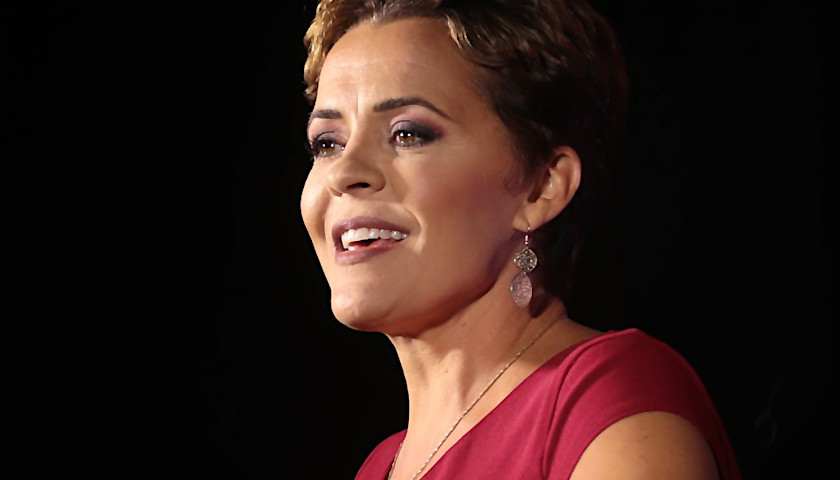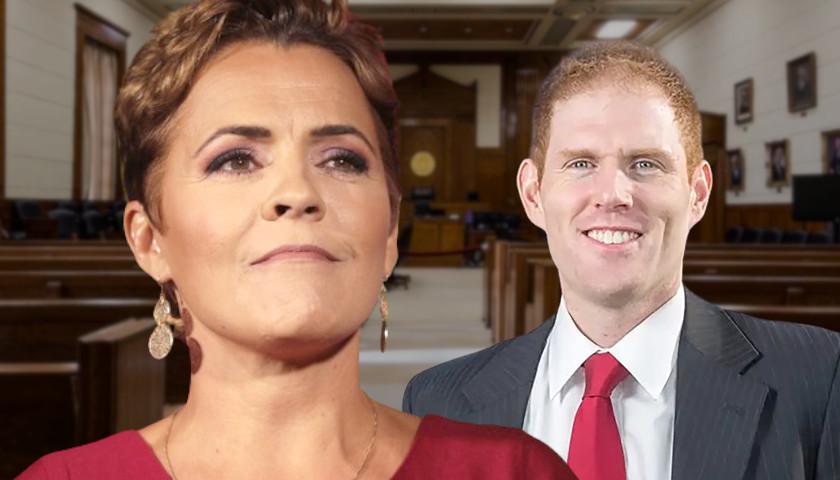After Maricopa County Superior Court Judge Peter Thompson dismissed Kari Lake’s lawsuit challenging her loss in the anomaly-plagued Maricopa County gubernatorial election, Lake filed a notice of appeal. She also requested that the Arizona Supreme Court immediately take her case, bypassing the Arizona Court of Appeals for several reasons.
“We’re going to appeal this,” Lake told Steve Bannon’s War Room podcast Tuesday. “We think we have absolute merit with this lawsuit, and we’re going to appeal it and take it even higher.”
"Arizona GOP gubernatorial candidate Kari Lake has filed a petition to transfer her appeal to the Arizona Supreme Court after her election fraud lawsuit was dismissed."
https://t.co/FVyVwaCgX3— Kari Lake War Room (@KariLakeWarRoom) January 2, 2023
The petition for transfer cited “extraordinary circumstances” for the expedited move. The first three reasons were 1), the disproportionate effect the tabulation problems had on Republican voters, “depriving Arizona of a ‘free and equal’ election,” 2), the timing urgency due to winning candidate Democrat Katie Hobbs being sworn in as governor on Monday, and 3), “purely legal issues of statewide importance” justify a new election.
The second three reasons cited were 1), the judge used the wrong standard, clear and convincing evidence, instead of a preponderance of the evidence, 2), the judge set a bad precedent by stating that laches barred the lawsuit, meaning it was filed too late, and 3), the judge used the wrong standard by requiring evidence of “unconstitutional elections” in order to find misconduct.
The petition concluded, “A new Governor is scheduled to be seated under a cloud of electoral uncertainty and impropriety. This action requires this Court’s speedy, final resolution, without resort to an intermediate decision by the Court of Appeals.”
It is common for higher courts to accept appeals of election lawsuits directly from the trial court level due to the interests of time. Even though Hobbs has been sworn into office, the courts can still order a new election or install Lake instead. Arizona faced a similar contentious gubernatorial election in 1916 with accusations of fraud, resulting in the Arizona Supreme Court installing the Republican challenger months later, removing the incumbent Democrat who was sworn in.
In early December 2020, the Arizona Supreme Court accepted an appeal directly from the trial court’s opinion from Arizona Republican Party chair Kelli Ward contesting Joe Biden winning the presidential election in the state. In early January 2021, the Arizona Supreme Court accepted an appeal directly from the trial court’s opinion dismissing another plaintiff’s lawsuit contesting the presidential election. The court agreed with both trial courts and found against the plaintiffs.
Lake’s petition cited Fleischman v. Protect Our City, where the Arizona Supreme Court explained that due to the subject matter being a time-sensitive election related lawsuit, it would hear an appeal directly from the trial court. It also cited Arizonans for Second Chances, Rehab., & Pub. Safety v. Hobbs, where the court referenced Smoker v. Bolin, stating, “time was of the essence and the matters involved were of great public interest.”
Courts of Appeals rarely reverse lower court decisions; roughly 90% of appellate court decisions affirm lower court rulings.
Pollster Rasmussen Reports tweeted about Lake’s appeal, “BACKGROUND — A significant majority of voters no longer trust the outcomes of elections in Arizona. A functioning republic cannot exit for long under these circumstances.” Rasmussen shared a poll taken on November 30 which found that 71 percent of likely U.S. voters believe it’s likely that problems with the election in Maricopa County affected the outcome of the Senate election in Arizona.
Republican Mark Finchem, whose lawsuit contending his loss to Democratic Adrian Fontes for Secretary of State was thrown out by a trial court judge on December 16, filed a notice of appeal with the Arizona Supreme Court. If the Arizona Supreme Court rejects Lake’s and Finchem’s appeals, they may appeal to the U.S. Supreme Court.
– – –
Rachel Alexander is a reporter at The Arizona Sun Times and The Star News Network. Follow Rachel on Twitter. Email tips to [email protected].
Photo “Kari Lake Rallies” by Gage Skidmore CC2.0.





